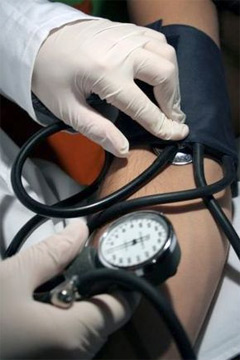fitness news
![]() ,
,![]()
Font size Cardiovascular Health
Five Ways to Lower Stroke Risk
– Reported, July 29, 2013

LOS ANGELES, Cali. (Ivanhoe Newswire) — A new study shows middle aged women suffering with depression are almost twice as likely to have a stroke. However, there are things you can do to cut your odds of having a stroke.
Keven Bellows vowed to take better care of herself after losing her husband to Alzheimers.
I thought if there was anything I can do to prevent that from happening to me, I want to take advantage of it, Keven Bellows told Ivanhoe.
She took her first step to a healthier lifestyle with the help of her newly adopted dog named rag-a-muffin. Studies show women who walk three hours a week lower their risk for stroke by 43 percent.
There have been a number of studies that show that physical exercise may be the key to preserving healthy brain function, David Merrill, MD, Assistant Clinical Professor of Psychiatry, UCLA Health, told Ivanhoe.
Another way to cut your stroke risk, watch your diet.
Nutrition is really central, Bellows said.
Diets filled with olive oil and potassium rich foods, like bananas, can lower your risk by 20 percent. Quitting smoking, and keeping cholesterol and blood pressure at healthy levels can also help.
The better control you have over the modifiable risk factors, the lower your stroke risk will be, Dr. Merrill explained.
High stress levels and anger can cause thickening of the neck arteries, which can also lead to stroke.
I am pretty good about stress reduction because I am a mediator. So, I mediate on a daily basis, Bellows said.
Finally, think fast to recognize stroke symptoms. F for facewatch for an uneven smile or numbness; A for arms and legswhich can become numb or paralyzed; S is for speechit could be slurred or confusing; and t is for timeyou dont have much of it! If you suspect a stroke, call 911 because every second of time lost is brain lost.
Doctors also urge you to monitor your headaches. Research shows women who suffer from migraines are at an increased risk of stroke.
FOR MORE INFORMATION, CONTACT:
Rachel Champeau
Assistant Director
UCLA Health Sciences Media Relations
(310) 794-2270 or (310) 794-0777
[email protected]